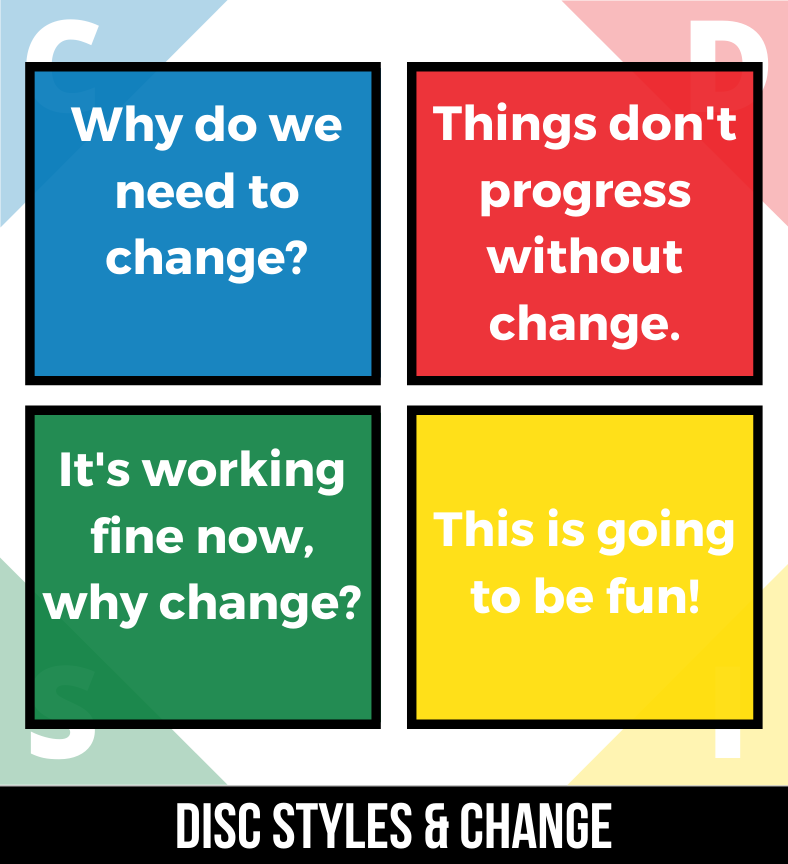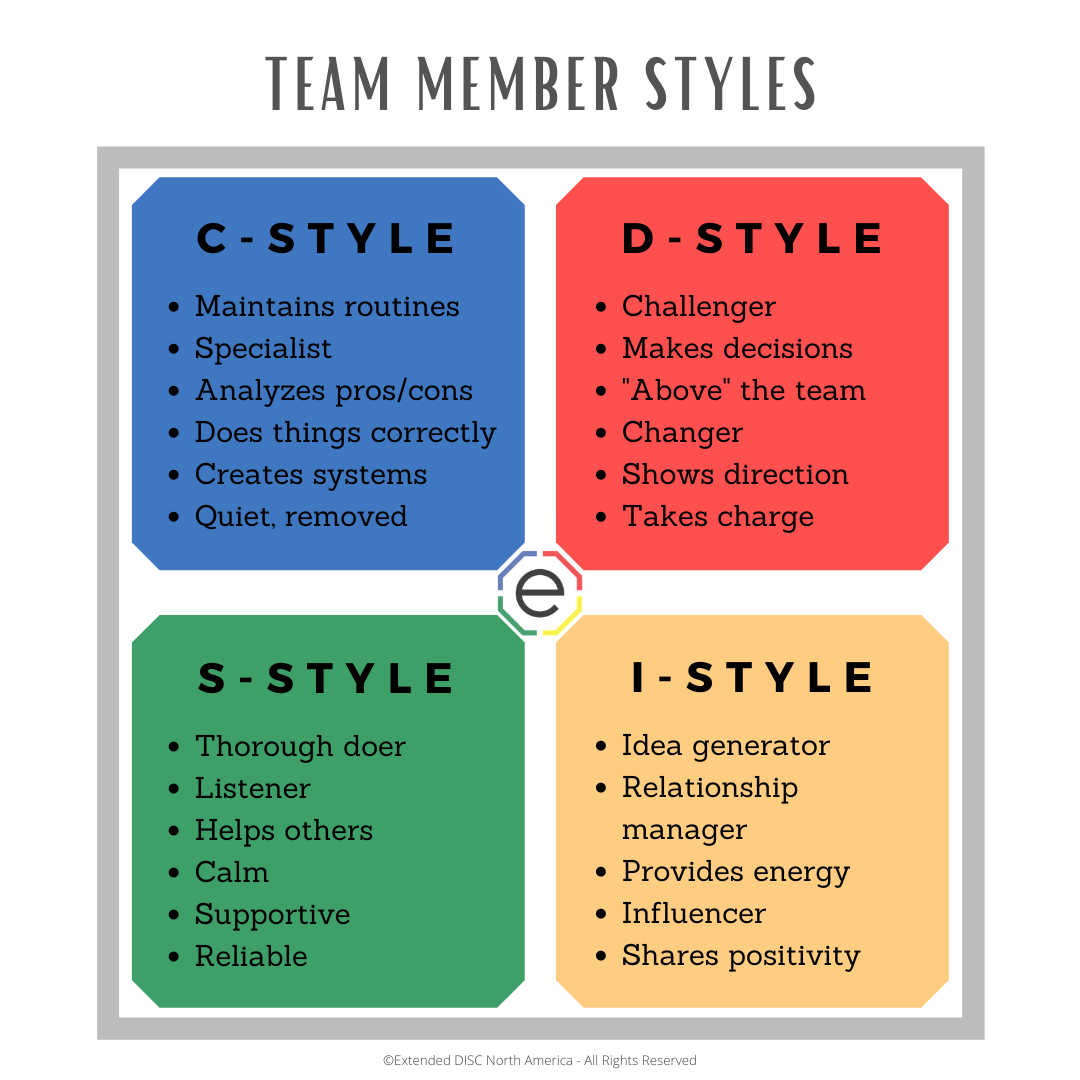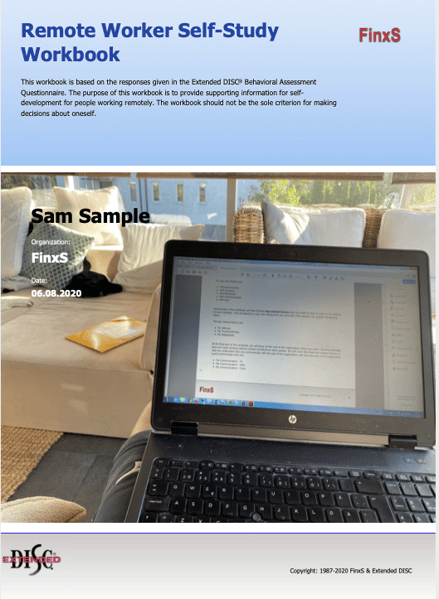Hybrid work is a new norm, yet it's still being defined and constantly evolving as people transition back to the office. DISC can help employees stay motivated and productive throughout these changes.
 Many companies are planning a return to the office full time within the next year, but many employees are finding it difficult to leave the flexibility and new normalcy of hybrid work. This has led some employees to consider quitting and/or resistant to the idea. All of which, can add uncertainty, stress, and a diminishing of trust; taking away from productivity and your team's success. Also, let's be honest, finding and training new employees is time-consuming and costly. What's the solution?
Many companies are planning a return to the office full time within the next year, but many employees are finding it difficult to leave the flexibility and new normalcy of hybrid work. This has led some employees to consider quitting and/or resistant to the idea. All of which, can add uncertainty, stress, and a diminishing of trust; taking away from productivity and your team's success. Also, let's be honest, finding and training new employees is time-consuming and costly. What's the solution?
Being productive when faced with changing work environments may be easier for some than others. Your natural reactions to change impact how you're able to use your strengths and may generate additional challenges. These changes can impact how comfortably you work and interact with your team.
Let's take a look at how DISC styles typically react to change.
How DISC styles react to change

You've likely noticed how people react to change differently. Some get excited because change brings new opportunities, while others feel apprehensive and uncertain. Where do you sit with change?
DISC not only predicts how different styles react to change, but also how to better manage it based on your preferences. For example, D-styles want constant change to have progress. D-styles may bristle at the shift away from remote work because of the loss of flexibility and independence, but at the same time they look forward to taking on the challenges the change will bring. Remind yourself, if you're a D-style, to focus on creating new opportunities to achieve your goals and tasks even faster.
As I-styles, you prefer to focus on the positives of change. You look forward to the fun opportunities to interact with people and work in a variety of settings. It's something different and new! As I-styles, use your excitement and energy to help others see the positive side of the change, but don't lose track of the tasks and details.
S-styles may feel like they're just settling into a remote work schedule and now are being asked to change again. You may be thinking, "it's working, why change?" As an S-style, look to your manager and team members for support and focus on the benefits the change makes for your team and organization.
C-styles want to understand the rationale behind the need to change. It has to make sense. Prove it to them. Be ready to provide answers to their questions with facts and details. C-styles prefer detailed plans and moving carefully and logically. As a C-style, remind yourself that change often creates higher quality processes and improvements. Use your strengths to help identify and provide solutions to problems that may occur.
Teams in transition
 Now, let's focus on your team. Teamwork is the sum of each member's productivity and how well you relate and interact with one another. Ultimately, it determines your successes.
Now, let's focus on your team. Teamwork is the sum of each member's productivity and how well you relate and interact with one another. Ultimately, it determines your successes.
How teams get work done has been challenged and reimagined these past years. Virtual meetings, emails, and phone calls replaced much of the face-to-face daily interactions we took for granted. In fact, many of us may be working closely with colleagues we've never met in person. This shift toward virtual and hybrid schedules can create new avenues of miscommunication and misunderstanding. It has pushed us to reevaluate how we work together. DISC helps your team be more proactive in avoiding and managing miscommunication by understanding how different team members tend to communicate.
Your style of communication works for you, but it may not work with your team members. As you and your team transition back to the office, you may recognize that there is no one-size fits all approach. Returning employees may not prioritize the same things as a few years ago.
How can you support your team towards resiliency and productivity with changing schedules. How should hybrid work look for your team? How should you assign responsibilities and tasks? What can you do to ensure each team member feels motivated in a changing hybrid work schedule? Don't attempt to answer these questions without supporting feedback. Use DISC to help you assign tasks that motivate the specific team member. Who prefers to come into the office? Who is more comfortable with changing routines and schedules on the team?
DISC helps you understand your team members' styles and how they tend to react to change; it's not a one-size fits all. Invest the time to know your employees and for your employees to know one another. In the long run, having this awareness about your team, will help you get to the end goal much quicker by avoiding communication and interaction pitfalls. You'll end up with a team who uses the language of DISC to communicate.
DISC provides information about your employees so you can make better decisions on how to best support your employees with change and hybrid schedules.
Getting started
Start by taking the Extended DISC® questionnaire which generates a variety of reports relevant to your situation.
 The Remote Worker Hiring Report provides information about an employee's remote work traits, their strengths, challenges, and responses to remote work demands; which are different from the demands of the conventional office setting. The goal is to provide information to understand how the employee is most likely to succeed in remote work. The report focuses on self-directiveness, self-discipline, self-motivation, and communication across different work settings.
The Remote Worker Hiring Report provides information about an employee's remote work traits, their strengths, challenges, and responses to remote work demands; which are different from the demands of the conventional office setting. The goal is to provide information to understand how the employee is most likely to succeed in remote work. The report focuses on self-directiveness, self-discipline, self-motivation, and communication across different work settings.
You're never going to go wrong with the Individual Assessment which highlights your reactions to pressure situations, your strengths and motivators, and how you prefer to interact in a team.
Don't forget team assessments to support your team. DISC team reports are not designed to provide answers to how to be a better team. Rather, they're a tool to generate inter-team discussions about how team members and the team, as a whole, prefer to do things. How can you communicate better virtually and in-person with each other? You can let your team members know how you prefer they communicate with you. And ask them how they prefer you to communicate with them. These opportunities to talk about communication aren't always available. Through DISC, you have non-judgmental information and talking points to create insightful and useful action plans to navigate changing work schedules.
What are you waiting for?
